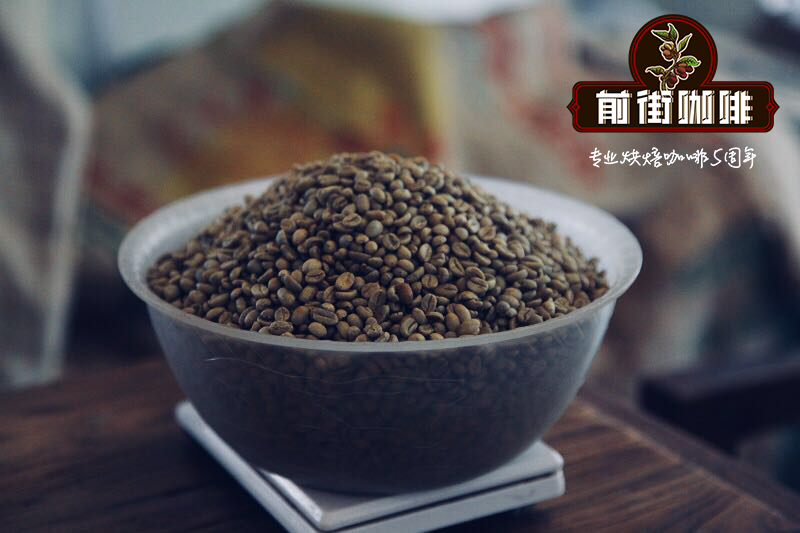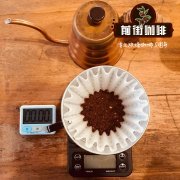The indomitable spirit of Ugandan coffee farmers in Uganda the rise of Uganda

Professional coffee knowledge exchange More coffee bean information Please pay attention to coffee workshop (Weixin Official Accounts cafe_style)
Sun-cured Uganda is grown on the northern slopes of the Elgon Mountains and is produced by retail coffee farmers. The steep cliffs of Elgon Mountain almost evenly divide Kenya and Uganda. The microclimate here provides excellent conditions for coffee growth and for the Sipi Falls coffee processing plant. Sipi Falls is a local central washing plant capable of processing freshly picked coffee berries and further drying them, providing additional convenience and conditions for local coffee farmers.
Coffee farmers in this area are mostly retail, with home-style coffee processing habits because they feel it saves them money. Kawacom, the exporter and owner of the Sipi Falls processing plant, has long tried to educate local farmers about how coffee processing plants can help them improve the quality of coffee processing and save time, which in turn can lead to higher incomes, encouraging local farmers to send their harvested coffee to the central processing plant for more professional washing, fermentation and drying. They also set up experimental breeding centers to develop higher-quality coffee varieties and provide agricultural support and assistance to local farmers, many of whom are mainly women.
Indomitable?
Winfrey. Winfrey Nakyagaba is fully committed to this work. She is a PhD student in agronomy at the International Institute of Tropical Agriculture, a pan-African nonprofit research organization, studying the effects of heat and drought on coffee plants in central Uganda.
On a hot day in late January, she visited small farms in Luwero. Luweiro is the main coffee-producing region, just north of Kampala. Usually, at this time of year, just after the rainy season, coffee trees are in full bloom and ready for harvest. But when gerard, a 47-year-old farmer who relies on three acres of farmland to feed his wife and seven children, In Gerald Joloba's house, the leaves of the coffee tree are brown and dry and crumble at the touch.
When she found some coffee cherries, they were dark and hard. Nakagawa strode restlessly, picking up leaves and shaking his head. Everywhere she looked, there were needle-like holes left by the twig borer, an invasive insect that thrives in warm, dry climates and causes healthy coffee trees to wither or die.
"If it had rained, there would have been coffee cherries hanging from these branches," she said."Now it's a pile of dry wood."
"This rainy season is very bad," Hollabar agreed."It hasn't rained properly for four months."
During the same period, Nakagawa also recorded the highest temperatures ever recorded in Luvero. Hollabar used his wallet to gauge the extent of the impact. His harvest fell by 60 percent, and his annual coffee income dropped from more than $800 a year to less than $300.
Most Lubero coffee farmers are experiencing similar problems, although they are trying to cope with the drought in various ways. They planted new coffee trees in the shade of bananas to keep them cool and reduce evaporation; they dug holes around each tree to collect rainwater; they spread compost made from leaves on the soil to maintain moisture; and they buried water bottles with small holes next to each tree as a specially designed irrigation system. But these techniques have limited effectiveness.
"They've done their best," Nakagawa said."It's just really dry."
Coffee's sensitivity to rainfall makes it "the crop that farmers are worst off facing the impact of climate change," says Peter Kampala-based agronomist for Olam International, one of the world's largest coffee distributors. Piet van Asten said.
Newly developed special seeds that require less rain, mature faster and are more resistant to pests and diseases can help farmers overcome deteriorating environmental conditions. These improved seeds are widely used in places such as Brazil and Vietnam, but rarely in Uganda. They are expensive and require specialized farming techniques.
to unite themselves.
END
For more professional coffee exchanges, please scan the code and follow WeChat: qiannjie

Please indicate the source for reprinting.
Important Notice :
前街咖啡 FrontStreet Coffee has moved to new addredd:
FrontStreet Coffee Address: 315,Donghua East Road,GuangZhou
Tel:020 38364473
- Prev

Where does Huakui coffee come from? which manor produces Sakui coffee beans? how about Sidamo washing Sakuran?
Professional coffee knowledge exchange more coffee bean information please follow the coffee workshop (Wechat official account cafe_style) 2000 meters above sea level Ethiopia native species Guji (Guji) is Ethiopia's largest coffee producing area, Sakuran comes from Hambella, one of its producing areas. Humbela is under the jurisdiction of Oromiyaa, the southernmost administrative state of Ethiopia.
- Next

The characteristics of Blue Mountain Coffee Variety Iron pickup Blue Mountain Coffee is suitable for roasting
Professional coffee knowledge exchange more coffee bean information please follow the coffee workshop (Wechat official account cafe_style) Jamaica Blue Mountains is a special regional product, only found in the Blue Mountains of the Central American island nation of Jamaica. Just like Longjing tea in Hangzhou, only the tea on the mountain of Longjing Village on the edge of the West Lake is authentic Longjing. According to the quality theory of agricultural products, coffee producing countries are right.
Related
- Detailed explanation of Jadeite planting Land in Panamanian Jadeite Manor introduction to the grading system of Jadeite competitive bidding, Red bid, Green bid and Rose Summer
- Story of Coffee planting in Brenka region of Costa Rica Stonehenge Manor anaerobic heavy honey treatment of flavor mouth
- What's on the barrel of Blue Mountain Coffee beans?
- Can American coffee also pull flowers? How to use hot American style to pull out a good-looking pattern?
- Can you make a cold extract with coffee beans? What is the right proportion for cold-extracted coffee formula?
- Indonesian PWN Gold Mandrine Coffee Origin Features Flavor How to Chong? Mandolin coffee is American.
- A brief introduction to the flavor characteristics of Brazilian yellow bourbon coffee beans
- What is the effect of different water quality on the flavor of cold-extracted coffee? What kind of water is best for brewing coffee?
- Why do you think of Rose Summer whenever you mention Panamanian coffee?
- Introduction to the characteristics of authentic blue mountain coffee bean producing areas? What is the CIB Coffee Authority in Jamaica?

